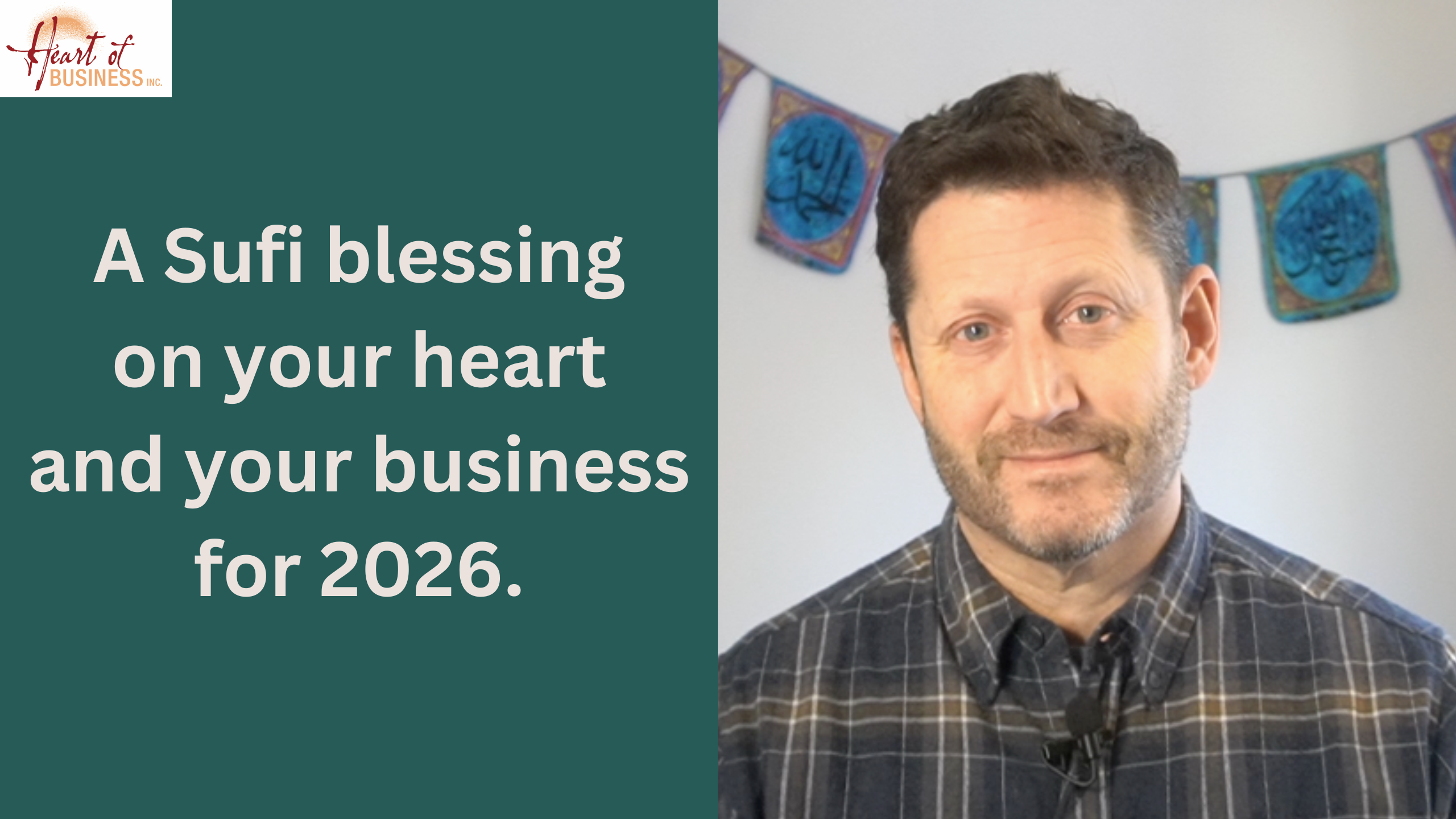At the front of the room someone is doing their pitch. They’ve just spent 30-50 minutes on their topic of choice, and now they are selling their system or program from the stage.
Some in the audience are swooning, credit cards out. Others are crestfallen, knowing they can’t buy in. Still others have a disgusted look on their face.
I’ve been at many of these kinds of pitches over the years and even delivered them myself a time or two. I just recently gained an insight into why they often feel so gross and how to make them more ethical.
What’s Happening At An Event
At nearly any event you have a tribe gathered. Meaning people who feel like they belong to a group. If the event is done well, there can be a powerful sense of community created, where people experience a high of intimacy and belonging that may not be present in their day-to-day life.
This sense of community and belonging is even more powerful at events that focus on transformational, spiritual, or cause-related work.
These are potentially dangerous waters for any business. Belonging is such a core human need, and it is so lacking in much of modern culture that it can overwhelm folks. When you make a pitch from the front of the room, it affects people strongly.
So strongly that it’s not possible for many people to make an individual choice based on their own heart. Instead, groupthink is a tide that can sweep away their sense of groundedness, no matter how good the seller’s intention.
Selling into a crowd is a fundamentally different dynamic than having the same conversation one-on-one. It has to do with the three levels of human existence.
The Three Consciences of Human Existence
In the first, which is called the personal conscience in Systemic Constellation work, we experience individual choice. A lot of personal development and healing happens at this level, where you’re working with personality dynamics and beliefs.
The third is the Divine conscience, where Source trumps everything. Miracles, grace, sudden healings. It’s hard to make personal or individual progress without connection here.
In between the first and third is the family system conscience, which often gets ignored in group sales situations. I became aware of this conscience through the work of Bert Hellinger and the book Love’s Hidden Symmetry.
A group has an energy to it that is analogous to a tide. No matter how strong your sense of sovereignty, when a group moves in a certain direction, you get pulled along with it.
I’ve seen people do tremendous personal healing work and deep spiritual surrender, and STILL be ambushed by ancestral patterns. They’re caught in the energy of the family. It’s happened to me. I had to do some very, ahem, “interesting” work with my Jewish family line before I could feel love and blessing on my endeavors, despite repeated messages from my heart’s connection to the Divine, and my own sense of clarity in my self.
Let’s look at how this operates in a group sales situation.
Who is Catching the Pitch?
A respected, cherished teacher is at the front of the room. It’s cost each person hundreds, or even thousands, of dollars to be there between tuition, travel, lodging and food. There’s a glow, and nearly everyone’s been pretty darn happy with the event so far.
The exercises, the teachings, the hanging out in each other’s presence has woven folks together. This happens on the personality level, where people just like each other and want to be near; folks eat meals together. It’s a hard decision just to take space for yourself to rest, because it can feel so good hanging out.
It also happens on an energetic level where hearts become woven together. There is a group heart that emerges in an event. Everyone becomes emotional or spiritual family to some degree or another.
When the pitch comes from a presenter, it’s not just a simple choice of whether to buy or not. The pitch represents a pathway, and the leader is traveling in that direction.
For everyone in the room, the choice of buying the program or not is really to some degree a decision of whether you are going to continue to belong to the group or not. People who are less vulnerable to this are the ones who already have a strong sense of belonging with the leader or elsewhere. For instance:
- long term clients who have enough of a personal relationship with the presenter that they know their sense of belonging isn’t at risk;
- peers of the presenter, those who have their own communities, know that their sense of belonging and connection to the presenter exists at a different level;
- “visitors” to the community, those who have a strong sense of belonging to another community or family, whose need to belong wasn’t high when they came to the event.
There are also people who have a personality with a strong rebellious or independent streak who may be cranky about the pitch, so will probably not buy.
If the presenter has done a good job connecting with their right people, the room is going to be full mainly of folks who belong to their community, and many fewer of the exceptions I list above.
You can see the problem, can’t you? For someone in the room, it’s going to be hard to tell how much of their decision to buy into the pitch is coming from a real sense of Divine guidance, a personality sense of “Yeah, I could really use that.” or being moved by the tide of group energy, “I really want to continue belonging!”
This is often exacerbated in these situations when individuals stand up to announce their decision to buy and frame it as a choice of commitment and courage. This can be absolutely true, yet if the group ends up applauding, it reads in the group as “Buy, and you receive approval and belonging.”
This dynamic is well-known in the seminar field and is often used manipulatively to drive greater sales at events. Painful! Many people avoid or are uncomfortable making pitches into a group for this exact reason.
It’s a Problem Even When You’re Sincere
If you aren’t aware of this dynamic, even if you go to great lengths to make it okay for participants to choose from their own hearts, people can still end up manipulated by the group energy.
No matter how strongly you stress individual choice, if you don’t address the dynamic of the group energy, it will be an invisible tide sweeping people along. Because it’s invisible, someone can think they are making a decision for themselves, and yet like swimming in a tide, they can end up somewhere far from where they would have ended up without the tide’s influence.
Of Course You Can Go Overboard
If you get so nervous about this dynamic and take all the responsibility, you end up disempowering people to make their own choices and sabotaging your business. After all you aren’t committing a war crime, you’re just making an offer.
What to do? What to do?
I don’t have a perfect answer, but I do have some ways to work with the energy. Let me give you fair warning: you probably will be sacrificing a certain number of sales on the altar of morality. But if you’re providing good stuff, you can still have a healthy number of buyers.
Keys to Making an Ethical Offer to a Group
- Name the dynamic. Presenters have the right idea when they assure folks the decision’s theirs, it’s just not addressing the middle level of group existence, the power of collective consciousness.If you take time to let people know that you’re aware of the dynamic and that people’s belonging isn’t at risk if they don’t buy, it can help simply because it’s acknowledged.
- Make the purchasing decision private. Instead of a stampede to the back table, how can you make it so the purchasing decision for each person is a private matter? Can you have folks turn in applications or order forms to an assistant later in the day?Also, you can intervene when someone wants to announce that they are signing up, and the crowd applauds. As a presenter, you can ask for people who aren’t signing up to stand up and have the crowd applaud their decision as one of courage of the heart and recognition of their own path *within* the group.
- Provide other ways to belong. Whether you provide an online membership site or distribute a participant contact list with supporting structures to have people remain in contact, providing ways for folks to get their need for belonging met after the event ends will help.
- Sell away! Go ahead and make your offer. Someone may still have a reaction despite your best efforts and intentions. That’s okay.
Your offer is still coming from your heart as a way to serve. Don’t let your knowledge of the group dynamic stop you from offering.
Just take some time to acknowledge the dynamic and work with it. The people who do buy will be the right ones for you, and those who don’t will stick around longer.






